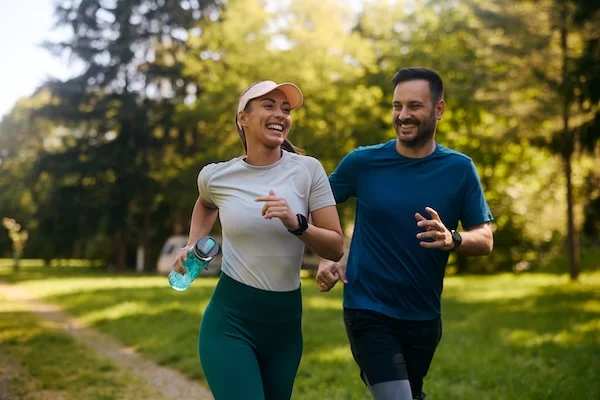 Sometimes it seems like these blogs are a broken record and say the same things over and over. Please note, if that is true, it is just showing you that different research groups coming from different biases are finding out the same things. Probably means there is truth there.
Sometimes it seems like these blogs are a broken record and say the same things over and over. Please note, if that is true, it is just showing you that different research groups coming from different biases are finding out the same things. Probably means there is truth there.
This was a study out of Oxford published in Nature Medicine, Feb 2025 where they looked for patterns in those who died prematurely or before the age of 75. They looked at almost 500K patients. “Integrating the environmental and genetic architectures of Aging and Morality.” They also looked at biological aging markers in a subset of 45,000 people in their group, looking at the proteomic age clock. They looked at the “exposome,” which they define as exposures we encounter through life.
They talk about how genetics has not changed much over the past 200 years, but lifespan has increased nearly 2X during the last 200 years. They postulate this must be due to behaviors and environment.
EXPOSOME. This was a new term to me, but it is referring to anything that is not genetic. They looked at 25 independent exposures that are associated with mortality and proteomic aging. The exposome accounted for 17 percentage points of risk (vs. 2 percentage points of risk associated with genetics), and was more predictive for issues of lung, heart, and liver. (Breast, prostate, and colorectal cancer and dementia incidence were more associated with genetics).
- Environment- where you live, pollution
- Smoking
- What you eat and drink
- Socioeconomic status, income, education
- Occupation
- Physical activity
- Living conditions
They do not negate that genes also matter. There is the APOE gene (APOE blog, and we test for it at Biohackr Brain testing) which is highly predictive for your risk for Alzheimer’s.
So what did the study conclude? Women do better than men overall. BAD EXPOSOMES: Smoking, renting public housing (not owning your own home), and where you lived significantly associated with increased mortality risk. GOOD EXPOSOMES: Living with a partner (vs living alone or with a non partner), the number of household vehicles, being employed, and income were associated with decreased mortality risk.
There were four points.
- DON”T SMOKE. They found other than age, smoking has a greater bearing on longevity and aging than ANY OTHER FACTOR. “Pack years” refers to how many packs a day and for how many years. This includes vaping, cloves, and pot. Smoking status (currently, former, or never) was the fourth most influential factor for death.
- SLEEP WELL. People who don’t sleep much at night are more likely to age quickly and die prematurely.
- GET MOVING. Physical activity is close to the top factor to influence biologic aging. Many chronic diseases which lead to early death are related to the heart, diabetes, and stroke- and all of these improve with physical activity. Obesity increases risk for these conditions as well. NOTE: More activity is not better. “Extreme physical activity may increase oxidative stress and thus increase aging.”
- WHAT YOU EAT MATTERS. Even though what you ate “didn’t have much effect on biologic aging,” those who ate better had lower risk of death. They think this is likely becaues those who changed their diets to be healthier did so to improve their health (like prediabetes). They strongly recommend lots and lots of plants, fish, and little red meat. You do not need a lot of protein until age 65
MEDICAL REFERENCE Nature Article